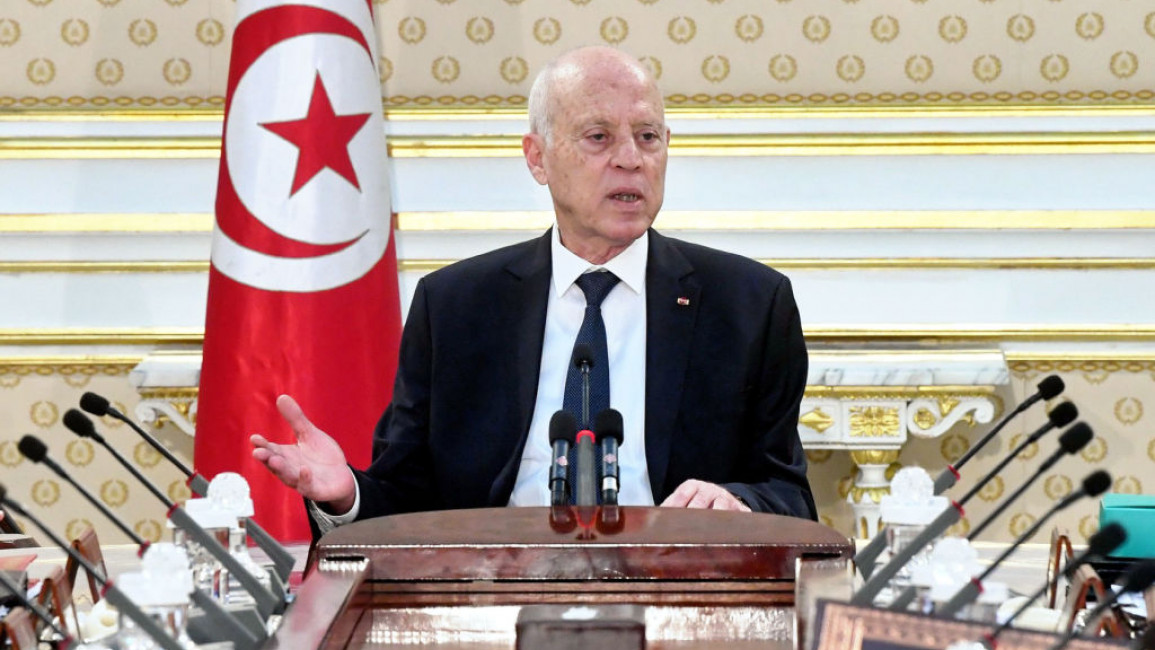Tunisia: Kais Saied to bar foreign election monitors for 2024 presidential elections
Tunisian President Kais Saied has announced on Thursday that he would not allow foreign election monitors for the country's presidential vote scheduled for 2024.
Saied made the comments on the sidelines of the swearing-in ceremony of new members of the electoral commission in the capital Tunis, official Turkish news agency Anadolu reported.
"Foreigners may attend to follow the elections as observers, but they will not come to Tunisia to monitor, as Tunisians alone will monitor the elections," Saied said.
"We do not send telegrams to countries such as France and the United States of America to thank them for their transparent elections.
"We don't need their testimony. Rather, we need the testimony of Tunisians."
🔴 La décision du gvnt 🇹🇳 d'interdire l'entrée de son territoire à notre délégation @Europarl_FR est triste et sidérante. Un fait grave et rarissime qui témoigne d'une dérive de + en + inquiétante du régime de Kaïs Saïed.
— Emmanuel Maurel (@emmanuelmaurel) September 14, 2023
Cet événement mérite une réponse ferme des autorités 🇪🇺. pic.twitter.com/DogfHS5tQH
The announcement came as Emmanuel Maurel, a left-wing French member of the European Union's parliament, said on social media platform X, formerly Twitter, that he learnt on Wednesday that the Tunisian government had banned a delegation from the EU parliament from entering.
"It's a very serious situation. This almost never happens, even in the most authoritarian countries, and it shows after all an increasingly worrying escalation being taken by the Tunisian regime," Maurel said.
"It's even more shameful given that the European Union… provides substantial aid to Tunisia, which is facing a serious economic and social crisis."
Saied carried out a power grab in Tunisia in July 2021 which opponents have branded a "coup".
The head of the SNJT journalists' syndicate, Mehdi Jelassi, earlier this month said the freedom of the press is "increasingly repressed" and that the authorities were "adopting a policy of lockdown and censorship to enforce their control over the media, particularly state media".
Agencies contributed to this report.



